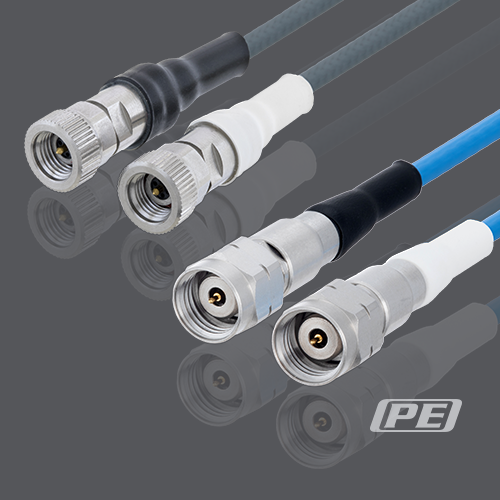 Skew-matched coaxial cable assemblies are an emerging solution that leverages coaxial cable technology for high-speed digital signal applications. These applications require precision timing between the high-speed protocol transmitter and receiver circuits, such as SERDES, USB 3.1, Ethernet, and PCIe. Rigorous testing is often needed to troubleshoot signal integrity issues in the channel, such as jitter, skew, or crosstalk. Given extended throughput of the latest of these standards, coaxial cable assemblies and microwave test equipment is more commonly being used to test high-speed digital signal devices and boards.
Skew-matched coaxial cable assemblies are an emerging solution that leverages coaxial cable technology for high-speed digital signal applications. These applications require precision timing between the high-speed protocol transmitter and receiver circuits, such as SERDES, USB 3.1, Ethernet, and PCIe. Rigorous testing is often needed to troubleshoot signal integrity issues in the channel, such as jitter, skew, or crosstalk. Given extended throughput of the latest of these standards, coaxial cable assemblies and microwave test equipment is more commonly being used to test high-speed digital signal devices and boards.
Even though most precision coaxial cable assemblies with enhanced phase stability may be good for a variety of testing, when addressing different signaling operations, the skew difference between the coaxial cable assemblies may be enough to mask signal integrity issues of the channels. Hence, skew-matching helps to enable the use of flexible coaxial cable assemblies in high-speed differential signaling applications where short lengths of mini-coax or semi-rigid cables would otherwise be prefered. In many high-speed digital signal test scenarios, a high count of differential-signal channels must be tested simultaneously, which leads to complex test fixturing and “nests” of test cables. As the limited length and lack of flexibility of these cables lead to test bench challenges, flexible coaxial cable assemblies with good signal integrity performance are usually preferred.
Furthermore, even extremely good quality control and precision manufacturing processes will still yield flexible coaxial cable assemblies of virtually the same length but with skew matching with variances on the order of picoseconds. Wide skew match between cables only impacts applications that require multi-port testing to wavelengths in the millimeter-wave spectrum, use long lengths of coaxial cable assemblies, and test benches that require the cabling to undergo flexure but need to maintain accuracy between measurements.
It is important to note that each skew-matched coaxial cable assembly must be phase stable in their own right to provide skew-matched performance when installed in a test system. Hence, skew-matched coaxial cable assemblies are made with temperature stable dielectric and design strategies that maintain a precision signal path length regardless of flexure. There is a significant amount of design consideration focused on reducing the strain of the cable and improving the temperature stability of the cable materials to achieve phase stability within specification. Also, to reach a channel-to-channel delay match between 1 ps to 5 ps, the cables must be 100% tested for reliable performance.
Learn more about Pasternack’s line of Skew-matched Coaxial Cable Assemblies in the following link:




 Pasternack Blog
Pasternack Blog
